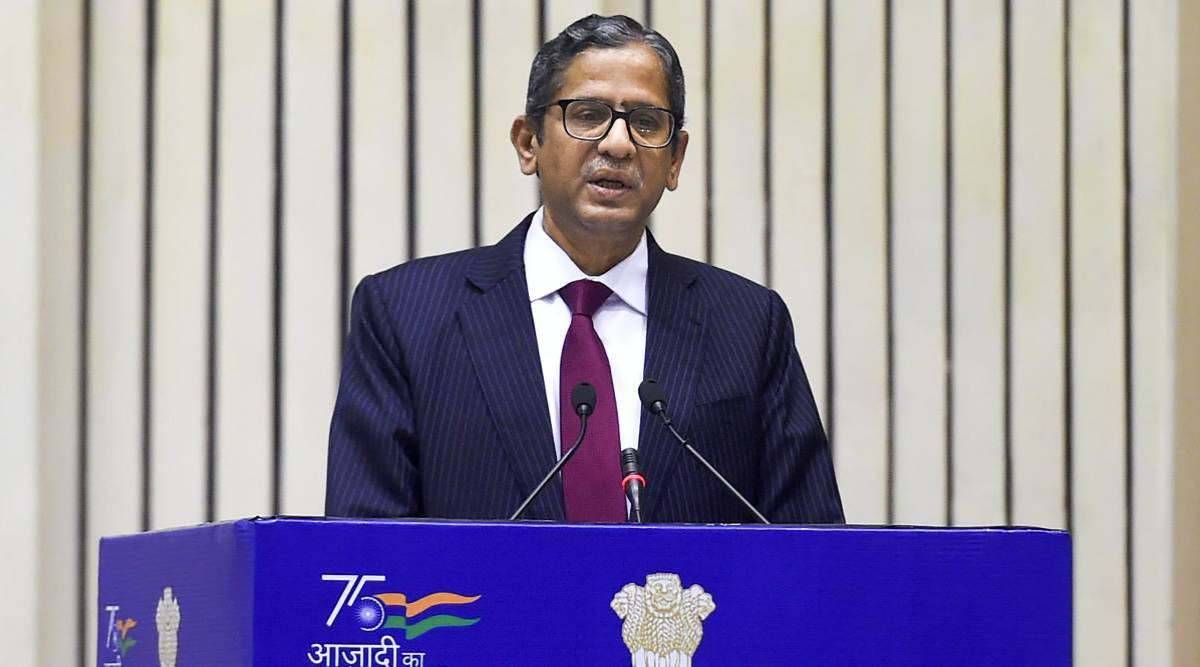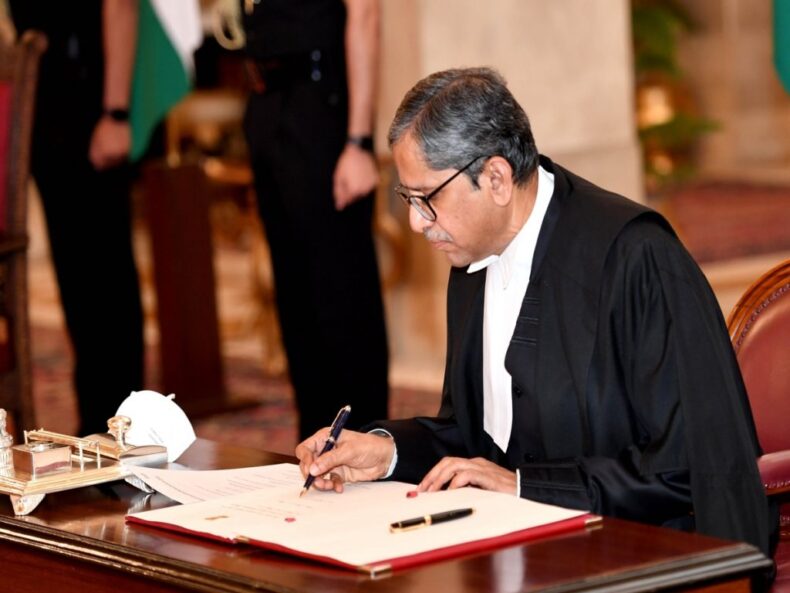Worrying about the freedom of Judiciary in India, CJI rebukes rampant media trials taking place all over the country.

Source: CJI on media trials – Bing images
New Delhi: CJI Ramana, on Saturday, lashed out at the media for apprehending trials based on false accusations and hearsay. The nation, since the pandemic, has witnessed a significant climb in such cases.
The CJI has spasmodically spoken about the provisos to which the nation may succumb. The top court has the responsibility of administering justice which has strikingly taken a set back due to sheer arbitrary trials by the media.
The media is a source of information and a guardian to the rights of individuals. The fourth pillar of democracy, has the onus of conscientiously guiding the people of the nation in forming a responsible public opinion. However, the media has deployed irresponsible and partisan criticism by hurling insults at one another.
Due to this there has been a sporadic rise in crime rate and intolerance among the common man.
What did the CJI say?
Calling out the agenda driven debates and “kangaroo courts” the CJI castigated the trials run by media houses that are pernicious for a democracy.
Delivering the inaugural lecture instituted in the memory of Justice Satya Brata Sinha, CJI Ramana said media trials affect the fair functioning and independence of the judiciary.
Moreover, he said, “Media trials cannot be a guiding factor in deciding cases. Of late, we see the media running kangaroo courts at times on issues even experienced judges find difficult to decide. Ill-informed and agenda-driven debates on issues involving justice delivery are proving to be detrimental to the health of democracy.”
Furthermore he added, “Biassed views being propagated by the media are affecting the people, weakening democracy, and harming the system. In this process, justice delivery gets adversely affected. By overstepping and breaching your responsibility, you are taking our democracy two steps backward.”
Moreover, he said that print media does have a sense of accountability but the electronic media seems to have no liability as to what they depict. Additionally, criticising the social media dummy runs on the judges, the CJI noted that there was an increase in such cases.
“Can you imagine, a judge who has served on the bench for decades, putting hardened criminals behind the bar, once he retires, loses all the protection that came with the tenure? Judges have to live in the same society as the people that they have convicted, without any security or assurance of safety,” he noted.
“Politicians, bureaucrats, police officers and other public representatives are often provided with security even after their retirement owing to the sensitivity of their jobs. Ironically, judges are not extended similar protection,” he said.
Furthermore, warning the media and urging them to act responsibly, the CJI said, “In fact, looking at recent trends, it is best for the media to self-regulate and measure their words. You should not overstep and invite interference, either from the government or from the courts. Judges may not react immediately. Please don’t mistake it to be a weakness or helplessness. When liberties are exercised responsibly, within their domains, there will be no necessity of placing reasonable or proportionate external restrictions.”
Acknowledging the answerability of the media, the CJI reminded them to use their power in order to educate the common man, encouraging the nation to move steadily and undividedly towards progress, prosperity and peace.
The CJI said that one of the biggest challenges before the judiciary at present is prioritising the matters for adjudication as judges cannot turn a blind eye to social realities.
With reference to this he said, “I shall not fail to place on record my worries about the future of the judiciary in this country. The burden on an already fragile judicial infrastructure is increasing by the day. There have been a few knee-jerk reactions in augmenting infrastructure. However, I haven’t heard of any concrete plan to equip the judiciary to meet the challenges of the foreseeable future, leave alone a long-term vision for the century and ahead.”
Concluding his talk, CJI suggested a way forward by urging the executive and judiciary to act in accordance through coordinated plans to address the failing infrastructure of Indian democracy before it crumbles.













